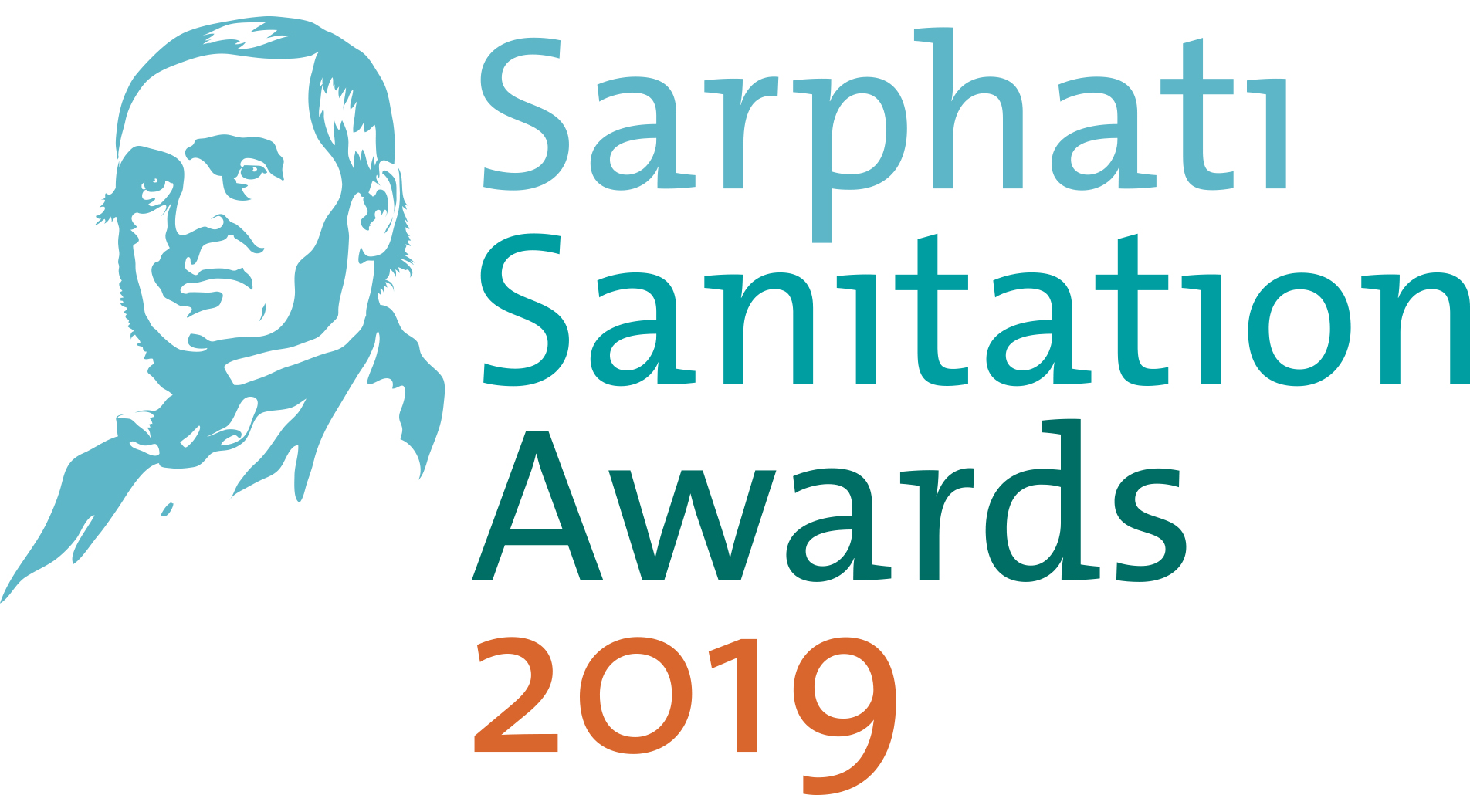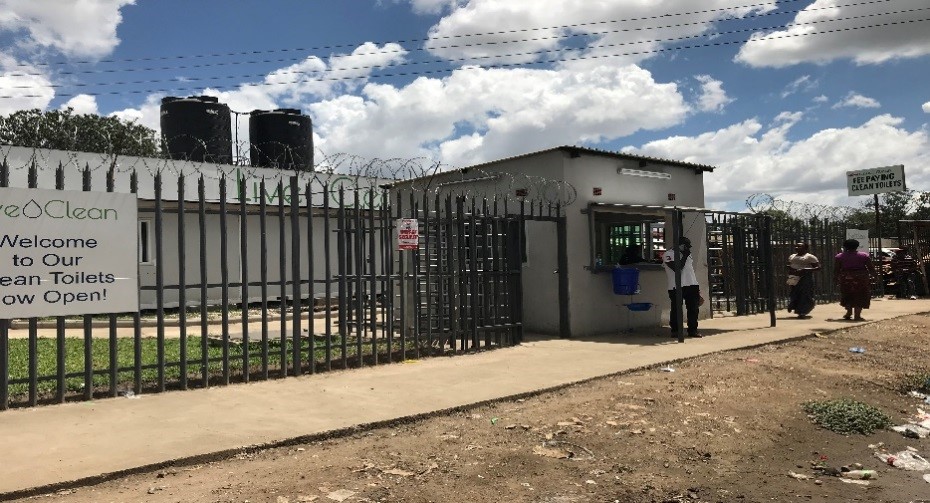Meet the nominee: Live Clean Initiatives from Zambia
18 October 2019This year, Live Clean Initiatives is one of the three nominees for the Sarphati Sanitation Award 2019 for Promising Entrepreneur. Live Clean Initiatives is a social enterprise founded by Mwila Lwando which provides access to public toilet and shower facilities that are safe, clean and affordable in peri-urban areas of Lusaka, Zambia.
The start of Live Clean Initiatives
Mwila Lwando, founder of Live Clean Initiatives, was working with farmers in peri-urban areas in Lusaka when he saw the crisis that poor sanitation was causing. In Zambia, 70% of urban ground water is contaminated and many people die each year from diseases related to poor sanitation. Lwando realized how much work there was to be done.
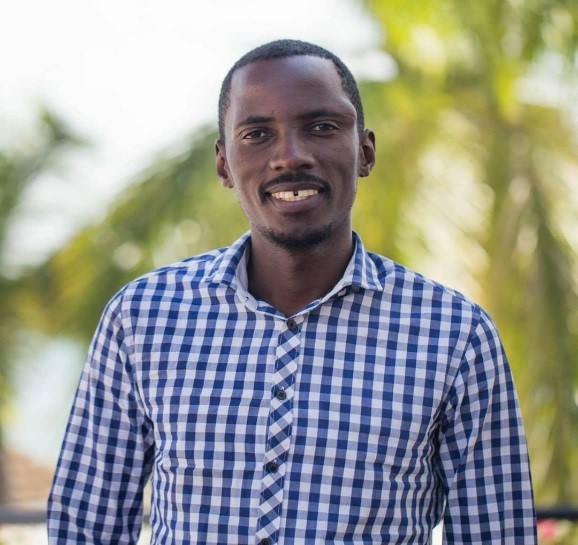
| “We realized how big a challenge sanitation was and I wanted to find a solution. I looked at NGO models, many of whom have failed, facilities are run-down and not clean, due to lack of maintenance. This was an awakening moment. I researched how much people would be willing to pay for toilets and if we could create a proper business around that price point. The Live Clean idea was born:” |
How does it work?
Live Clean provides toilets and shower facilities for the peri-urban areas of Lusaka. The toilets are built from cargo containers and are run with a sustainable model. As there are no sewage connections in this area, it was important for Lwando to create a solution with zero environmental impact. “We are very concerned with the environment and want to make sure that our system minimizes ejnvironmental impact at all states of the sanitation process” Lwando stated.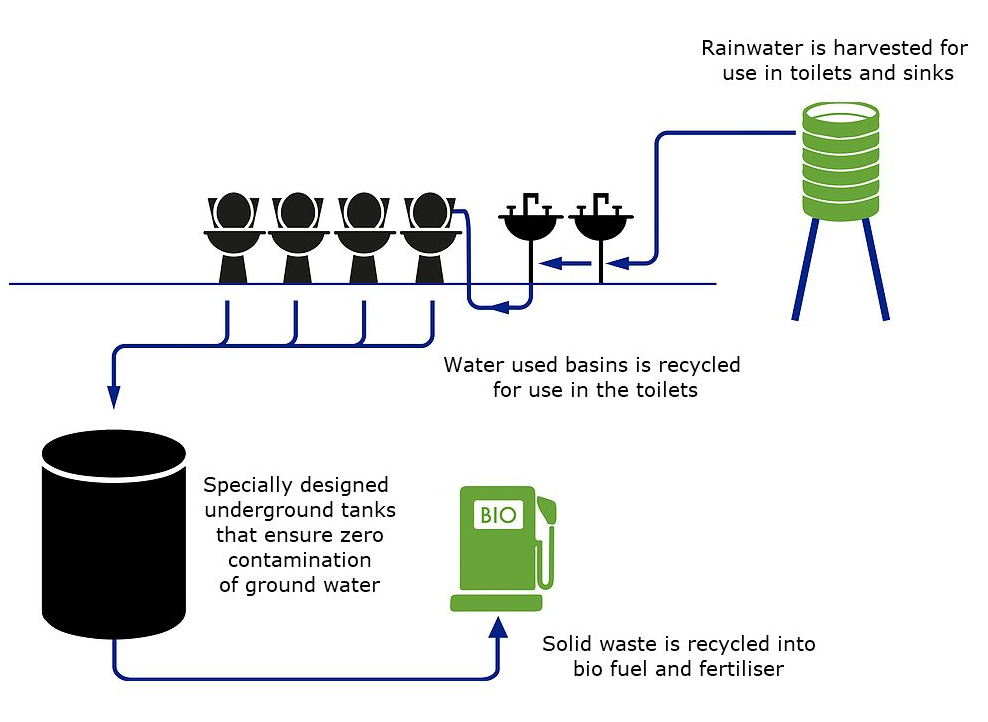
Lwando calls the process “fully green”. The facilities are powered by solar energy, and rain water is collected for use in the toilets. Waste water is recycled for use in toilets and showers, and additionally for drinking water. This is done with a water-recycling biodigestion system, which uses membrane filters to treat waste water from the toilets. Finally, solid waste is converted into bio-gas and fertilizer which can be then be reused.
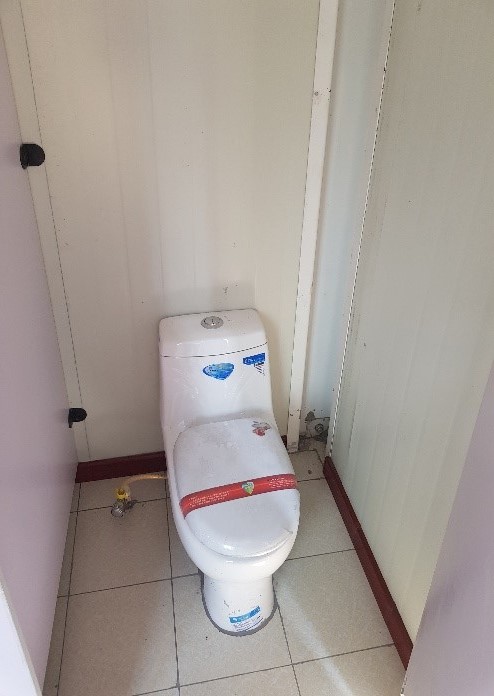
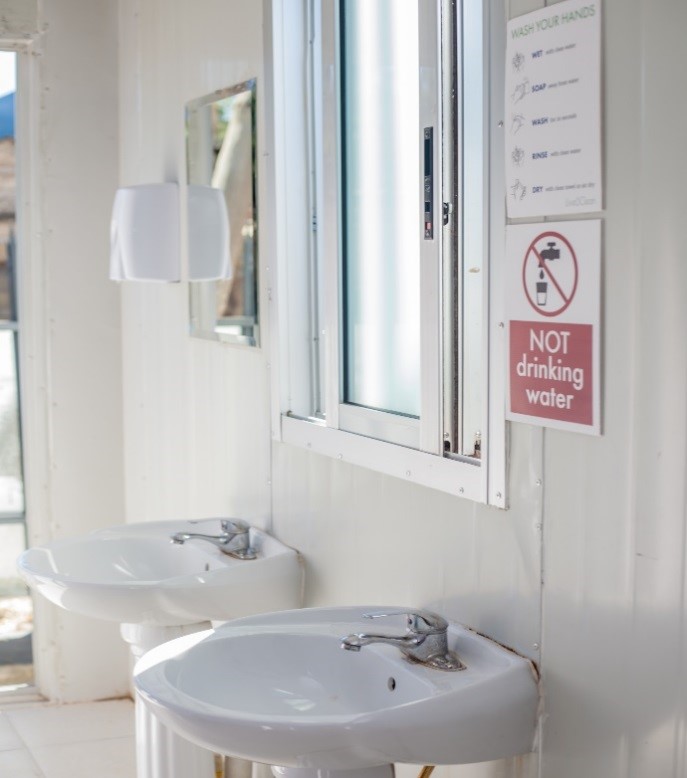
On average, these facilities serve 500 users a day, of which 60% are female. There are currently three active sites, with plans to establish two more before the end of the year. At this point, the facilities will total 45,000 users a month. Each user pays 20 cents for access to the facilities and 5 cents for 20 liters of water.
Attention to gender is another important focus for Live Clean. Lwanda says that the facilities are improving women’s access to sanitation.
| “One of our main objectives is to further the empowerment of women in Zambia. By providing modern sanitation facilities, women are offered an easier and cleaner alternative to pit latrines and makeshift holes. The toilets are secure and the sites are fenced and guarded to provide a safe environment. We also offer sanitary pads at minimal cost.” |

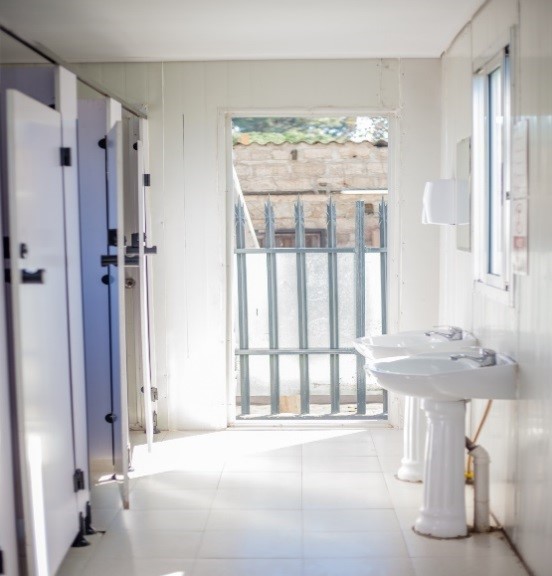
Growing the business
Setting up this type of sanitation service was not without difficulties. Lwando shared his biggest challenges when starting his business. “Up until now, sanitation services have been provided by governments and NGOs, and taking a business approach to the problem is not always welcomed. There are deep-seated fears that you might be taking jobs away from government and NGO workers when in fact we could be the implementing partners that guarantee sustainability of the investments.” Lwando also expressed that the focus on reporting in the sanitation sector leaves little time for managing and running a business, and argues for a more results-oriented approach.
One of the biggest challenges Lwando faced was the fact that sanitation is not considered as a business to be invested in by many investors, and the lack of a private equity and venture capital market which makes growing a sanitation business even more complicated.
According to Lwando, there is still a long way to go.
| “We are just getting there in a sense. We now need to cement our position in Zambia and expand across the continent. We are currently working to build systems and processes. At the core of this is the development of a dynamic ERP solution that will be able to track impact in real time across operations with access to service numbers. We are also working on our human capital component to support the business expansion and are actively seeking to develop and attract top talent. While we are also working to improve our waste water treatment plant to be more efficient and using less space hence discussing with another of players in the sector.” |
Join Mwila Lwando at the Sarphati Sanitation Awards 2019
Live Clean is one of three nominees for the Sarphati Sanitation Award for Promising Entrepreneur. The theme for this year’s award is integrated, decentralized solutions for the urban context.
The winner of the Sarphati Sanitation Award for Promising Entrepreneur will be announced during the Opening Ceremony of the Amsterdam International Water week (AIWW) conference () on Monday, 4th of November in the RAI Amsterdam Convention Centre.
For more information about this year’s Sarphati Sanitation Awards () and the first Sarphati Sanitation Symposium 2019 (), please don't hesitate to contact us via [email protected] () or follow us on Twitter () or Facebook ().
